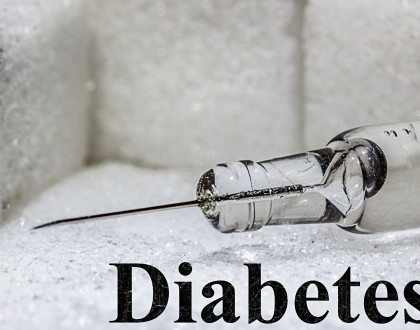Diabetes and Mental Health: The importance of taking care of mind, body and soul

Imagine receiving a diagnosis of diabetes- being told that you will have to live the rest of your life with a chronic disease that affects nearly every system in your body. Imagine being told you need to make changes in your diet and exercise routine, and that you may have to prick your finger multiple times a day to keep track of your blood sugar levels, not to mention the potential for a daily regimen of pills and insulin shots. Finally, imagine you receive this diagnosis on top of the already present concerns of making ends meet, being a single parent, not having health insurance, or not speaking the same language as your doctor. What sort of impact does such a diagnosis have on a person’s mental health? One answer to that question is the fact that, in the United States, people with diabetes are twice as likely as the average person to have depression.
According to the “Health of Boston” 2012-2013 report, 9% of African American adults and 6% of Latino adults have diabetes, compared to 5% of White adults, which indicates a clear health inequity. The Women’s Health & Wellness program at YW Boston educates underserved women (primarily Black, Latina and immigrant) on sustainable healthy lifestyle behaviors for the prevention and management of chronic disease, including diabetes, in an effort to address this and other health inequities in the greater Boston area.
So why highlight the relationship between diabetes and mental health?
Because self-care is the foundation of diabetes management! A healthy mind and self-esteem are essential to living a long, healthy life with the disease.
When you think about it, it makes a lot of sense. In addition to the possible scenarios mentioned above upon receiving the initial diagnosis, diabetes management can continue to be overwhelming and potentially lead to symptoms of depression. Some people may feel isolated from friends and family because they can no longer enjoy activities like before they were diagnosed. Certain times of year may be more challenging, like the holidays for example, with the increased access to sweets and alcohol. Stress and illness can cause your blood sugar to fluctuate, making you feel as though you cannot get a handle on the disease.
If you have diabetes, it is important to watch for signs of depression, like long periods of sadness or hopelessness, loss of interest in normal activities, and unexplained physical problems. If you find yourself in this situation, there are things you can do:
- Enroll in a diabetes self-management program; they not only serve to promote healthy behaviors for physical wellness, but can also improve mental health by addressing quality of life and self-confidence.
- Discuss the emotional side of diabetes with your doctor and communicate your needs if you are having trouble managing the condition.
- Counseling can help to lessen the symptoms of depression, which in turn can result in better diabetes management.
- Finally, there are many things you can do on your own to manage the stress that can result from diabetes management and life in general. Healthy stress management activities include talking with friends and family, getting enough sleep, making lists to keep organized, and practicing relaxation techniques such as deep breathing, meditation, and prayer.
For further information on the relationship between diabetes and depression, please visit:
http://www.diabetes.org/living-with-diabetes/complications/mental-health/
http://www.nimh.nih.gov/health/publications/depression-and-diabetes/depression-and-diabetes.pdf
There are a number of blogs out there kept by people with diabetes. Support can come in many forms, even online. So check out these links to see what people find challenging and rewarding about living with diabetes.
http://www.diabetesselfmanagement.com/Blog/
http://www.bittersweetdiabetes.com/
If you are interested in hosting a women’s health workshop at your organization, please contact healthwellness@ywboston.org
